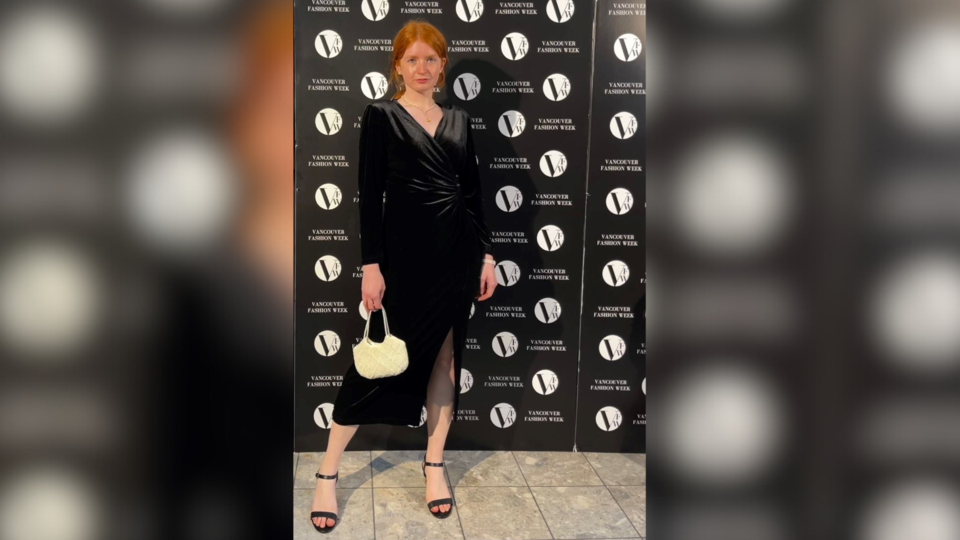Fashion doesn’t have to be expensive as one Richmond volunteer recently demonstrated.
Maria Paehler, 19, a volunteer at Richmond’s RAPS thrift store, attended Vancouver Fashion Week earlier this month.
Like other audience members, Paehler dressed up for the event in a chic velvet dress with jewelry and a matching bag.
But unlike the expensive brand clothes many were wearing, Paehler’s entire outfit was from the thrift store she volunteers at and cost about $10.
“I was looking for clothes to wear at the Vancouver Fashion Week and one day when I was sorting through the donated clothes, I found that dress up here, then I also got my jewelry and a bag here,” Paehler told the Richmond News.
“I felt like I blended in.”
Paehler, who moved to Richmond from Germany two months ago for a one-year volunteer program, said she hopes to show people that elegant outfits don’t always have to cost that much.
“You don’t have to look for high fashion brands and spend a lot of money to look great, and sometimes you can find high fashion brands in thrift stores too,” she said.
“Also, those clothes have a story, a history. It's better than just going to a random store and getting some clothes that may be made in a factory two months ago. It's very nice to have a history behind your clothes and give it a second life.”
Paehler added she plans to bring a suitcase of thrifted items back to Germany at the end of her volunteering program as they don’t have many thrift store options in Germany.
As the city celebrated Earth Day last weekend, Karen Kamachi, manager of Richmond-based RAPS thrift stores, said she wants to remind Richmond residents to thrift clothes to protect the environment.
“Maria’s experience shows how good quality our clothes are,” said Kamachi.
The store receives about 300 bags of donated clothes every week. Volunteers go through them manually and about 200 bags end up on the store’s shelves.
The rest of the clothes, usually those that are damaged, are sent to another charity to be shipped to Somalia to be turned into shopping bags, before they are shipped back to Canada for sale.
“Some women in Somalia wash it, cut it up and repurpose it back into shopping bags, so they can earn money selling the shopping bags back to other businesses who need them,” said Kamachi.



